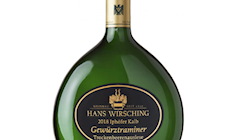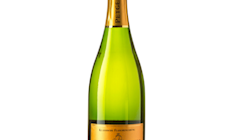Best European Grapes Types
Primitivo is an Italian grape variety with quite interesting origins. Research conducted in 1994 proved that the grape is identical to Californian Zinfandel, while it was later discovered that both grapes originated from an old and obscure Croatian grape Crljenak Kaštelanski.
Despite the same lineage, these grapes are influenced by their terroir, and they can slightly differ in character. In Italy, Primitivo is mostly cultivated in Apulia, where it is used in the appellation Primitivo di Manduria. Primitivo is a somewhat rustic wine, dark, intense, and rich in tannins that tend to mellow with age.
VARIATIONS OF Primitivo
Saperavi is a resilient red Georgian grape that originated in the eastern region of Kakheti, and though it is still predominant in Georgia, small amounts are also grown in other Eastern European regions, Australia, and the United States.
This teinturier grape that has dark skins and flesh produces full-bodied wines of a dark garnet color which are characterized by aromas of ripe red berries and pleasant acidity. Most wines produced from the Saperavi grapes are varietal and have a great tendency to age.
Sapervai wines are incredibly versatile and can match a variety of dishes, including delicate fish dishes, stews, grilled meat, or game.
Malagousia is an ancient, white-skinned Greek grape that was saved from extinction by Vangelis Gerovassiliou, who brought it back from obscurity in the 1970s. The grape produces aromatic dry wines, which are usually of excellent quality.
It is also used to make dense and perfumed dessert styles. On the nose, the wines display intense aromas often reminiscent of peaches, pears, and tropical fruit, usually with citrusy, herbal, and subtle floral notes. On the palate, they are full-bodied, rich, and round, and the best examples manage to remain lively and fresh.
Moschofilero is a Greek grape that hails from Peloponnese. It is an aromatic and late-ripening variety that delivers high yields, but it is sometimes sensitive and finicky to grow. Despite its common presence, Moschofilero was only popularized in the 1970s and ’80s, primarily by the producers from PDO Mantinia, the most important wine region for Moschofilero.
Varietal Moschofilero wines can be incredibly versatile. They will usually have bright and crisp acidity, which highlights their clean and fresh character. The wines from lower altitudes will usually have more freshness, and those from higher vineyards tend to have a more prominent floral character.
THE BEST Moschofilero Wine Varieties
Gewurztraminer is a pink-skinned grape that produces some of the most aromatic and complex white wines in the world. The exact origin of Gewurztraminer is hard to trace, but the grape is related to Traminer family that is cultivated across Europe, and although Gewurztraminer has shown success in Germany, Austria, Australia, Washington and California, the French Alsace region remains its foreground.
Alsace produces varietals that are rich and typically deeply colored, often low in acidity and high in alcohol with exotic aromas of lychee and rose petals. Their character and the body heavily depends on the terroir and ripeness of the grapes, and they may range from dry to off-dry and sweet styles.
THE BEST Gewurztraminer d'Alsace Wine Varieties

Weingut Hans Wirsching
Iphöfer Kalb Gewürztraminer Trockenbeerenauslese
Frankfurt International Trophy - Grand Gold 2022

Weingut Ökonomierat Petgen-Dahm
Petgen-Dahm Gewürztraminer-Sekt b.A. "Les deux dames" klassische Flaschengärung
Asia Wine Trophy - Grand Gold 2017
Barbera is the most common grape in Piedmont and the third most-planted grape in the country. It is used in varietals and blends. Nowadays, it is considered to have great potential to produce excellent quality wines, although it was once considered as a grape designated for rustic, everyday wine.
Dark Barbera-based wines are typically low in tannins and high in acidity. The flavors usually include a combination of raspberries, blackberries, cherries, and strawberries, sometimes with a hint of spices. Oak-aging will typically improve the tannin structure in Barbera wines.
Nero d’Avola is an indigenous Sicilian red grape, whose name, meaning the black of Avola, refers to its distinctive dark color. For most of the 20th century, Nero d'Avola was used as a blending grape, but in the 1990s winemakers started making high-quality, bold varietal wines.
Nero d’Avola wines are typically produced as dense and dark, with flavors reminiscent of black fruit and chocolate, or as young and fresh wines that are characterized by cherry and herbal notes. They are high in tannins and pair well with rich meat dishes, hearty stews, and barbecued meat.
Roditis is a pink-skinned variety from Greece that is cultivated throughout the mainland. It is the second most planted grape in Greece, used both in varietals and blends. The grape was mostly used for bland, inexpensive bulk wines, but the recent shift to quality has slightly improved its reputation.
Roditis is terroir-driven, and the grape is multi-clonal (at least three confirmed clones), creating wines with somewhat different characters and features. The best expressions come from old vines and high altitudes, resulting in subtly aromatic wines with a medium body and high acidity, such as those from Aigialia Slopes in the Peloponnese.
Sangiovese is a red grape variety indigenous to Italy that is predominantly grown in Tuscany, but also in other central and southern regions, from Romagna down to Lazio, Campania, and Sicily. It is best known as the main grape used in Chianti or Vino Nobile di Montepulciano and as the only grape in the prestigious Brunello di Montalcino.
Though its flavor profile may be influenced by the terroir, Sangiovese based wines are rich in tannins and high in acidity, while their flavor is savory, and may range from rustic to fruity, with typical notes of cherries, dark stone fruit, spices, tobacco, and dry herbs.
THE BEST Sangiovese Wine Varieties
Pinot Gris, also known as Pinot Grigio and Grauburgunder, is a white grape variety whose origins are believed to be in Burgundy, but the grape has shown amazing potential in Alsace—the region with which it is mostly associated nowadays.
In Alsace, Pinot Gris is considered a noble grape. In the past, it was mistakenly related with Hungarian Tokaj, and it was often called Tokaj d'Alsace. The wines made from Pinot Gris considerably differ in character than those found in other wine-growing regions.
TasteAtlas food rankings are based on the ratings of the TasteAtlas audience, with a series of mechanisms that recognize real users and that ignore bot, nationalist or local patriotic ratings, and give additional value to the ratings of users that the system recognizes as knowledgeable. For the “Top 100 European Grapes” list until April 23, 2025, 2,179 ratings were recorded, of which 1,481 were recognized by the system as legitimate. TasteAtlas Rankings should not be seen as the final global conclusion about food. Their purpose is to promote excellent local foods, instill pride in traditional dishes, and arouse curiosity about dishes you haven’t tried.

















































































































